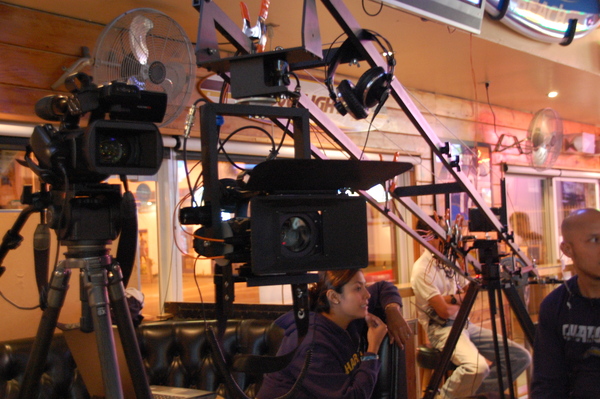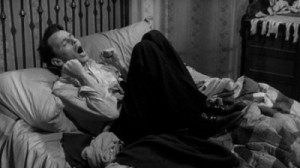Has A Celebrity Got A Chance At Rehab?
I have not been a chronic television watcher since early childhood, mainly because the projections on a two dimensional screen seem to be to be — at best — a weak distillation of the human drama that happens in my office.
But for my patients, I know well that the line between what they see on television and what they see in their living room is blurred at best.
I have, however, been compared to various TV shrinks — which I have been told is a compliment. The first person who told me I was like one, I asked why. When she said “because you always say the right thing.”
I was obviously flattered since you better believe I am NOT scripted.
It has been a while since one patient told me she liked to watch Dr.
Drew Pinsky’s reality show “Celebrity Rehab,” and asked me what I thought of his show. I had to admit I had never seen it. She was disappointed, but said someone like me probably spent time “reading books and stuff.” Dull, archaic, and most of what I read comes off the internet, but I let her answer end the conversation as we changed the topic of discussion to more immediate concerns.
I saw a show and a half as part of some-kind of a marathon while stuck in a hotel in a distant town while consulting in another part of the state. Even my husband, a layman, groaned at the proceedings.
I can’t believe that anyone can accept this show as representing anything even close to the reality of addiction treatment. I guess they do, the same way people want to believe that Miley Cyrus is really a weekends-only-otherwise-nerdy rockstar, or any minimally believable truths about people they attach to through that screen that enters the home consistently.
The depiction of how an MD treats substance abuse was so outrageous that I – passive peacenik that I am – wanted to throw a shoe at the TV screen.
I think I remember hearing him once on a sex advice show, and he has a radio show, and his official biography says that he has an academic appointment at USC. Look, even if he does have a little private practice, he does not seem to be doing anything that is close to addiction medicine as practiced in 2011.
Admittedly, I don’t specialize in the field, but as a psychopharmacologist, I’ve done plenty of drug detox treatment and I’ve worked closely with several rehab facilities and substance abuse doctors.
This is not Reality TV – this is “grab some lucrative audience demographics” TV. The “National Enquirer” model of celebrity exploitation, not the medical model of drug treatment.
This is a television show, after all – not a drug rehab facility. As such, there are great big TV cameras around, and huge banks of bright lights to film by – not to mention dozens of crew members, cables running all along the floor and maybe even teleprompters.
Perhaps other viewers are jaded enough that it does not bother them that when someone plans an “escape” from treatment at his first intervention that he has this whole camera crew following him and perhaps a director shouting at him, “go slower, the dolly can’t follow that fast!.”
These shows pump up the drama. Reality is often just boring, and it doesn’t make good TV. In the episode I saw, our host, Dr. Drew sat and watched one of his patients crying and writhing in the agony of benzodiazapene withdrawal. This is no time for “tough love.” A patient should not have to suffer if a doctor knows enough medicine to give her some relief. I have taken many, many patients off of the most addictive drugs known and they don’t suffer more than some mild discomfort – often none at all.
But if we have a rehab house full of actors – well, they are good at acting and the director has probably given them the go-ahead to turn on the full-scale withdrawal.
If you want to see an actor pretending to go through withdrawal, check out Frank Sinatra in “The Man With The Golden Arm.” He was nominated for an Oscar acting out his “cold turkey” ordeal.
In real life – REALITY – if a person does not get medication for their potentially life threatening condition, that is — at the very least – negligent. In some cases it can be considered malpractice.
Then, like an angel of mercy, Dr. Drew, looking as if he has been watching a scene from Hamlet, magisterially pronounces “you have suffered enough.”
Dr. Drew is not only a real medical doctor — he plays one on TV, wearing a stethoscope draped around his neck for a prop. I presume that it is for dramatic intent, as I have no evidence that he knows how to use it. I guess he decided the circular reflector on the headband was not fashionable.
He had an opportunity to use it once to take blood pressure, but he called an assistant to do that.
I have never seen him do a physical examination, and I would be surprised if he did that on the air, since the accompanying fact-finding is pretty low on dramatic content.
I suppose that women (curiously enough, the people who asked me what I thought of the show were both women.) go for this guy who is only a couple of steps removed from Marcus Welby, M.D. Gray haired, never raises questions or ambiguity, never gets angry and always seems ready to cite a 12-Step or general social platitude at exactly the right moment.
Oh my word, does not that mean that he is at least a little bit “scripted?” I have seen him in “group” where a PhD sitting next to him says something and Dr. Drew cheerfully paraphrases it about five seconds later.
He is12-Step clearly, although I see no overt reference to that — no charts on the wall, certainly no negation of egos.
Its no surprise that TV critics find it good television. What is more concerning is that the “official” bio for this man says that he has been warmly received by the addiction community. I suppose that is possible, but I have not turned up any references on my little computer to confirm this claim.
I think that is because the addiction community probably means the Alcoholics Anonymous old guard. I have fought with them. They think a detoxification and treatment have to be difficult. Addiction is sin, and the penalty must be paid. Suffer – you deserve it.
I say “Pish Posh” (and sometimes stronger things).
A more honest claim would be that the associated lapses make drama, of course, and might be enough to scare some folks away from addiction. But I have not met any such people and haven’t even heard of them.
What I do know is people who claim that they are totally without religious affiliation, yet who cling to a movement where there is transgression, and through some sort of physical and cosmic punishment, find a spiritual redemption to cling to and to proselytize.
If that is not a religious model, then I don’t know what is. And believe me, I know exactly what a religious model is.
I believe in the medical model. I believe enough that I have bet the last 30 years of my life to follow it. There are lots of alternatives available now, as the Alcoholics Anonymous model does not work for plenty of folks.
The reason is very simple: AA is a support program – it is not treatment. I acknowledge that it is a valuable support service and has helped many people. I just believe it is mis-used if it is considered a stand-alone substance abuse solution.
When I first wanted to talk about treating the psychiatric problems underlying addictions, I gave some free speeches to addiction treatment facilities. I called the ones that I knew had no medical backup and offered my services.
I was not invited back to any of them. None of them ever seemed interested in having a medical doctor that could solve the problems of their addicted clients.
Sadly, addiction and substance abuse is a money-driven field. It should come as no surprise that a facility would make most of its money by recidivism – repeat offenders.
Just think of some of the most notorious celebrities and how many times they’ve gone through rehab. Did you think they got money-back guarantees? Of course not! They pay full-pop every time they go back.
It’s not only celebrities that have substance abuse problems. You just don’t hear about the thousands of other people who go through the revolving door several times in their lives.
The courts will remand people to these places rather than sentencing them to actually get cured. Hmmm ….
The medical way is to relieve pain and suffering. People who have been or still are addicted have suffered plenty on their own, and certainly do not need anyone to help or show their suffering any extra.
But the truth is, celebrities are paid to be on Celebrity Rehab. That’s right – it’s an acting job. I just imagine someone talking to their agent, who says, “you are too wasted to look good even with lots of makeup on a daytime talk show. Nobody wants to book you. Let’s get you on Celebrity Rehab.”
Not many, perhaps, but maybe a couple of people, like Donald Trump, believe that this program could be a bad career move.
Maybe there is something — a very little something — about “demystifying” the addiction process, but that would be social addiction, the para-religious model. The medical model is to relieve suffering.
People do, after all, need to remember what they are told and feel and this can be pretty painless — if people are relieved of anguish. I have had this talk (which generally turns into an argument) with Alcoholics Anonymous partisans.
Celebrities are very different from most people. One of the problems I see with the 12-step model is that people take its verbiage and use it as their own. Helping people “get real” (one of the 12 step terms, admittedly) and find their own voice is tough, since people do not generally learn much about their own language and as such are not terribly articulate.
Moreover, there is a difference between the high-priced indulgences of the celebrities and the indulgences of the homeless. I remember a patient who read Patty Duke’s biography, “Call Me Anna,” and never assimilated the fact that buying a car when manic was more a celebrity alternative than a real one. I got one heck of a call from the local car dealership.
There has to be something analogous going on with the addicted, who may even have an underlying illness if they are in rehab. Bipolar illness is common, and sixty percent or so of bipolars start with addictions, often alcohol, because nobody wants to get the “tags” (read “labels,” old word) that come with seeing a shrink.
Celebrity Rehab is what it is. The song “That’s Entertainment” comes to mind.
Filed under Substance Abuse by on Feb 19th, 2011. ![]()



Leave a Comment